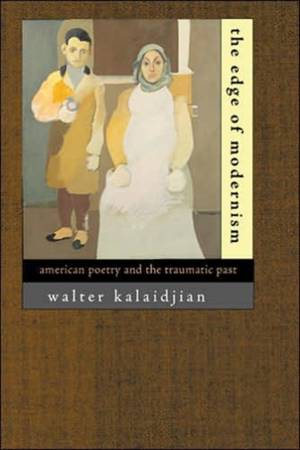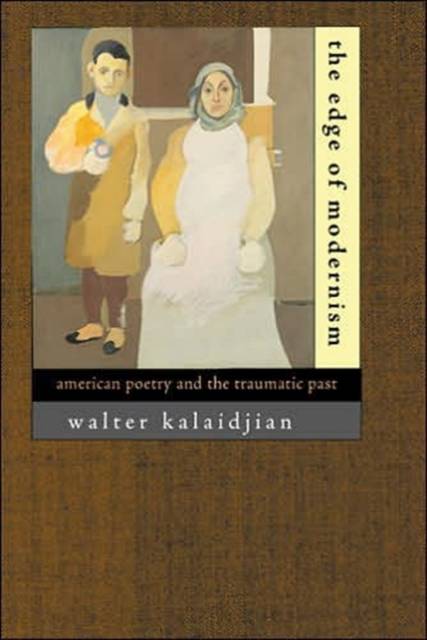
- Afhalen na 1 uur in een winkel met voorraad
- Gratis thuislevering in België vanaf € 30
- Ruim aanbod met 7 miljoen producten
- Afhalen na 1 uur in een winkel met voorraad
- Gratis thuislevering in België vanaf € 30
- Ruim aanbod met 7 miljoen producten
Omschrijving
In The Edge of Modernism, Walter Kalaidjian explores American poetry on genocide, the Holocaust, and total war as well as on postwar social antagonisms, racial oppression, and domestic violence. By asking what it means for traumatic memory to have agency in the American verse tradition, Kalaidjian creates an original historical account of how American poets became witnesses, often unconsciously, to modern extremity. Combining psychoanalytic theory and cultural studies, this intense, sweeping account of modern poetics analyzes the ways in which literary form gives testimony to the trauma of twentieth-century history.
Through close readings of well-known and less familiar poets--among them Langston Hughes, Countee Cullen, Claude McKay, Edwin Rolfe, Sylvia Plath, Adrienne Rich, Peter Balakian, Rachel Blau DuPlessis, Anne Sexton, and Anthony Hecht--Kalaidjian discerns the latent "edge" of modern trauma as it cuts through the literary representations, themes, and formal techniques of twentieth-century American poetics. In this way, The Edge of Modernism advances an innovative and dynamic model of modern periodization.
Specificaties
Betrokkenen
- Auteur(s):
- Uitgeverij:
Inhoud
- Aantal bladzijden:
- 256
- Taal:
- Engels
Eigenschappen
- Productcode (EAN):
- 9780801882319
- Verschijningsdatum:
- 6/01/2006
- Uitvoering:
- Hardcover
- Formaat:
- Genaaid
- Afmetingen:
- 160 mm x 233 mm
- Gewicht:
- 489 g

Alleen bij Standaard Boekhandel
Beoordelingen
We publiceren alleen reviews die voldoen aan de voorwaarden voor reviews. Bekijk onze voorwaarden voor reviews.











